Appointments at CAMHS
After your referral to CAMHS has been accepted, someone from the service will get in touch to arrange an appointment with you. We're here to help you understand what an appointment at CAMHS means, and what to expect.
Contents
Jump to page information on:
More about CAMHS
If you want to know more about what CAMHS offer, it might help to first read our page on understanding CAMHS.
If you're already getting help from CAMHS, see also our pages on who works at CAMHS and problems you might face.
When I first went to CAMHS, I was terrified... I was convinced that needing help meant I was weak and pathetic. It took a while for me to realise that wasn't the case.
What should happen in my first appointment?
In your first appointment with Child and Adolescent Mental Health Services (CAMHS, or SCAMHS in Wales), you'll meet someone from your CAMHS team. Your appointment should normally last around an hour:
- You might fill out some forms or write answers to questions about how you're feeling.
- You might talk about diagnoses, mental health problems or difficult experiences linked to poor mental health.
- They might do some physical health checks, like blood tests or pulse rate, too.
They might ask a parent, carer or guardian to join some parts of the meeting – let your CAMHS team know if you don't want them to be there.
At the end of your first appointment, or a little while after your team have thought things through, they should let you know what happens next. They should tell you:
- If they can help you
- How they can help you
- How long you'll wait before starting treatment
What will they ask me in my first appointment?
Someone from your CAMHS team might ask you questions about:
- How you've been feeling or your mood
- What you've been experiencing
- Any changes in your sleep or eating
- Problems at school or at home, or any difficult things that have happened recently
- Relationships with family, carers, friends and partners
- Things you enjoy doing
- Things you would like help with
- How you think CAMHS could help
- Your medical history, or if people related to you have any health problems
Try to share all that you can to get the best out of the service. Be as open and honest as you can be. Even if you cry a few times, it always makes things so much better to get things out there.
How can I prepare for my first appointment?
Feeling prepared can help you to feel calmer about your first appointment. You don't need to do lots of preparation. Especially if you don't feel well enough, or the idea of it makes you feel stressed.
Before your appointment, it could help to:
- Write things down – try writing what you've been feeling or experiencing, how long it's been going on and what you think you need help with.
- Think of ways you want to share – you might prefer to read out something you've written down, talk freely, or maybe a bit of both.
- Talk to people you trust – tell them how you're feeling about your first appointment and how they can support you leading up to it.
- Plan ahead for practical things – think of what you need to do to be ready. This could be knowing who you're meeting, where you're meeting and making sure you've packed a drink and notepad.
- Try to make time for things you enjoy – think of how you'll take care of yourself before and after. For example, you could meet a friend or play video games afterwards.
Ask questions and keep asking them. You will have a lot of questions, and you can feel like you're asking too many questions.
What questions should I ask in my first appointment?
You can ask about anything you're unsure of in your first appointment. Having all the information can make you feel more in control.
It might help to ask:
- What should I expect from CAMHS?
- How many appointments will I get?
- How long will I have to wait?
- What if I turn 18 during my time at CAMHS?
- What treatments will CAMHS offer me?
- How will this treatment help me?
- What do I do if I need urgent help?
- Is there anything I can do to help myself?
- Who can I contact if I have more questions?
Don't worry if you forget to mention something. You can ask questions at any point during your time with CAMHS.
What do CAMHS appointments look like?
The type of appointment you have will depend on your local service. Your appointments might be face-to-face, or could be by phone or video call.
If you're getting weekly talking therapy, you could talk to a therapist through video or by phone. You might go to some appointments in person, depending on your needs and what your local service can offer. This will be up to the service, your therapist and what works best for you.
Since the coronavirus pandemic, CAMHS now offer different ways to get support. A lot of support is offered online, or by phone or video calls.
I got my treatment during lockdown. It wasn't as effective as it could have been, because it was over the phone. I couldn't speak about my home life.
If you're not comfortable with the type of appointment you're given, you can ask for a different type that works better for you.
You can contact reception staff, or the person who you're going to speak with. Let them know what you'd like and why. You can also ask a trusted adult, like a parent, carer or guardian, to help you do this.
For more information about your choices, see our page on problems at CAMHS.
It might have been different if I'd met the psychologist in person and established some trust. Especially when you're younger, it's hard to meet someone over a screen and tell them difficult things. I didn't find it helpful. It's just not the same.
How can I cope with long waiting times?
As CAMHS support so many young people, the waiting lists are often really long. Lots of people have to wait a long time for first appointments, plus any following treatment and support.
They should be able to give you a rough idea of the waiting time when they first get your referral. If you're worried about things getting worse while you wait, let them know. For more advice, see our information on what to do if you're not happy with CAMHS.
Waiting for help can feel really upsetting and worrying, especially if you're finding it harder to cope with your mental health.
It might help to:
- Speak to your doctor – ask them about other support you can try while you wait. For more information, see our page on visiting your doctor.
- Contact CAMHS – someone should be able to tell you when you should get an appointment. You can also ask them if there's anything you can do while you wait.
- Explore other options for support – you might be able to get help from school, charities or community services near you. For more information, see our page on finding support.
I decided to remove myself from the CBT waiting list because it was taking so long. I continued having my counselling sessions and incorporated CBT techniques.
Ways to cope while waiting for help
Waiting a long time for help can feel really hard, but remember you're not alone and it's not your fault.
To cope while waiting, you could try some things on your own to help yourself:
- Explore different ways to look after your wellbeing.
- Journal or write about how you feel and what you're experiencing. You could also read content written by young people who have gone through similar experiences, like blogs.
- Read, listen to, or watch things that teach you to cope with how you're feeling.
- Speak to other young people about what you're going through on message boards online, like The Mix and Childline.
For me, journaling and writing stuff down on a page is so helpful. If you struggle with intrusive thoughts like me, it helps to see them objectively on a page, as they feel far less scary.
To cope while waiting, you could get help and support from other people:
- Talk to family and friends about how you're feeling. Tell them when you're having a good day, as well as going through a more difficult time.
- Ask someone like a trusted adult or teacher about ways they could support you while you're waiting.
- Keep in touch with your GP if you're struggling to cope, or if things are getting worse.
- Talk to someone who is trained to listen to you and support you. You can do this by phone, text or web chat. Find helpful organisations and charities in our list of useful contacts.
We were told that it would take some time as the waiting lists are quite long. While waiting, I received support from my school counsellor.
Talking therapies
These involve talking with a professional about your thoughts, feelings and behaviour. There are many types of talking therapies, such as counselling or cognitive behavioural therapy (CBT). You usually take part for an agreed length of time and number of sessions.
Visit our full treatment and support glossaryTherapist
This is a trained professional who runs or supervises your therapy. Therapists help you explore how you’re thinking, feeling and behaving, and what can help you in the future.
There are different types of training and education for therapists. This means they all have different titles, like psychologist, therapist, counsellor or psychiatrist.
Visit our full treatment and support glossaryChild and Adolescent Mental Health Services (CAMHS)
These are services that support young people with their mental health.
You might see them called different names sometimes, but they offer the same type of services for young people:
- In Wales, they're called Specialist Child and Adolescent Mental Health Services (SCAMHS)
- In England or Wales, you might also hear them called Children and Young People’s Mental Health Services (CYPMHS)
Find out more in our CAMHS information hub.
Referral
This is a request to a service asking them to review:
- how you’re feeling
- what support you need.
The referral helps explain to the new service why they should see you, and what the best way to help you might be.
Sometimes referrals can be made by yourself, a family member or social worker. But they’re often made by your doctor as they understand your medical history.
Visit our full treatment and support glossaryThis information was published in December 2022. We will revise it in 2025.
The quotes on this page are from young people we spoke to while making this information. They've given us their consent to use their quotes in our information. The words, experiences and opinions in the quotes are not related to the young people shown in any of the photographs we use.
References are available on request. If you would like to reproduce any of this information, see our page on permissions and licensing.














